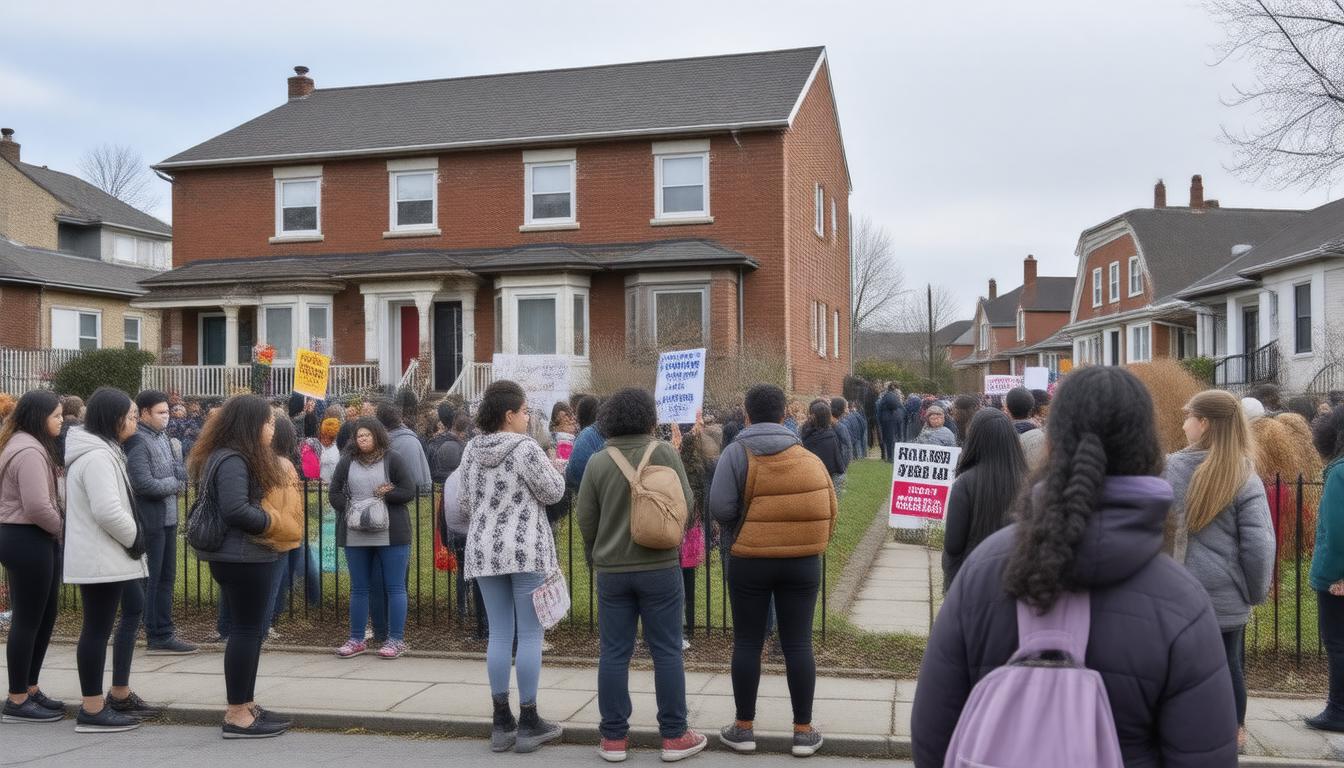Residents of East Durham are increasingly vocal about the need for more stringent regulations on Houses in Multiple Occupation (HMOs), stirring community debate over housing standards and neighborhood integrity. A recent petition presented to Durham County Council has garnered significant support, with 153 signatures calling for action against the proliferation of HMOs in their communities. Councillor Kevin Shaw, representing Seaham, underscored the discrepancies between current HMO regulations in East Durham compared to those in more urban areas, arguing that the lack of protective measures is contributing to the deterioration of local family home environments. As applications for converting traditional family homes into HMOs rise, particularly in economically challenged areas, residents are worried about potential adverse effects on community cohesion and housing availability. While current laws require planning permission for the conversion of properties accommodating more than six tenants, the council has cited the relatively low number of existing HMOs as a reason for not implementing further regulations. This debate reflects broader issues concerning community welfare and housing policy in the region, necessitating a reassessment of how HMOs are managed to ensure the wellbeing of East Durham’s residents.
Key Takeaways
- Residents in East Durham are demanding stricter regulations on HMOs to protect their communities.
- There is a notable increase in the conversion of family homes to HMOs, raising concerns about community wellbeing.
- The local council is hesitant to impose additional restrictions despite growing community concern over housing availability.
Overview of HMO Concerns in East Durham
Residents in East Durham are increasingly voicing their concerns regarding the burgeoning number of houses in multiple occupation (HMOs) in their community. Recently, a petition advocating for stricter regulations on HMOs was submitted to the Durham County Council, boasting 153 signatures from local inhabitants. Councillor Kevin Shaw, representing Seaham, has been vocal about the lack of protective measures in East Durham, contrasting it with the enhanced regulations seen in city centres. According to Shaw, the region is experiencing a worrying trend with a growing number of family homes being converted into HMOs, which he argues is detrimental, particularly in economically deprived neighborhoods (Rodgers, 2024). Currently, while landlords seeking to convert family homes into HMOs housing more than six individuals are required to obtain planning permission, the council indicates that the small percentage of existing HMOs in East Durham does not justify the imposition of additional regulations (Jones, 2024). Presently, there are specific locations where particular planning and licensing measures are enforced; however, the council is hesitant to widen these regulations due to the overall low number of HMOs reported. The ongoing discussion reflects a heightened anxiety among residents regarding the effects of HMOs on local housing availability and the overall well-being of their communities as they seek a balance between property rights for landlords and the needs of local residents.
Current Council Regulations and Community Impact
The situation has prompted community leaders and residents to engage in discussions about potential solutions that could benefit both residents and landlords. Councillor Shaw emphasizes the necessity for more inclusive dialogue with stakeholders, including local landlords and housing advocates, to explore the possibility of implementing an Article 4 Direction in areas most affected by HMOs. This regulatory tool would empower the council to require planning permission for all HMOs, thereby affording greater control over housing conversions within the community (Taylor, 2024). Additionally, local advocacy groups are calling for the establishment of a ‘HMO licensing scheme’ to ensure that landlords adhere to certain standards, which could mitigate potential negative impacts on the community, such as increased traffic and reduced amenities. As residents continue to champion their cause, it is evident that the ongoing debate over HMOs is not merely about housing policies, but also about preserving the character and cohesion of East Durham’s neighborhoods.





